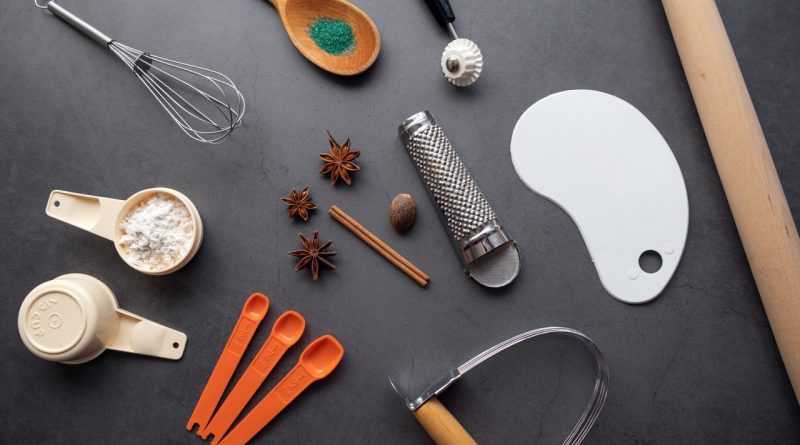Zwilling’s Emphasis On Reducing Kitchen Waste Through Durability
In an era where sustainability is more crucial than ever, reducing kitchen waste has become a focal point for many consumers. Zwilling, a renowned name in culinary tools and kitchenware, places a strong emphasis on durability to help mitigate waste. This article explores the importance of kitchen waste reduction, how Zwilling prioritizes durability in its products, practical tips for reducing waste using Zwilling tools, and the broader environmental impact of choosing durable kitchenware.
Understanding the Importance of Kitchen Waste Reduction
The kitchen is often a hotspot for waste generation, with items like plastic wrap, disposable utensils, and broken tools contributing significantly to landfills. According to the Food and Agriculture Organization (FAO), roughly one-third of food produced globally is wasted, leading to not only economic loss but also substantial greenhouse gas emissions. By focusing on waste reduction, consumers can take meaningful steps toward a more sustainable lifestyle.
One effective way to reduce kitchen waste is through the selection of durable kitchenware. Investing in high-quality tools that last longer reduces the frequency of replacements, ultimately minimizing the waste generated from manufacturing, packaging, and disposal. Durable kitchenware also supports the growing movement toward zero-waste cooking, where every ingredient is utilized efficiently, and every tool is employed to its full potential.
Furthermore, reducing kitchen waste contributes to a healthier planet. The less waste we produce, the lower our carbon footprint becomes. This aligns with global efforts to combat climate change and promote sustainability. By choosing products that are built to last, consumers not only benefit their own kitchens but also play a role in fostering a more eco-friendly future.
How Zwilling Prioritizes Durability in Its Products
Zwilling’s commitment to quality craftsmanship is evident in its extensive range of kitchen tools and cookware. The brand employs innovative materials and manufacturing processes that enhance the durability of each product, ensuring they withstand the rigors of daily use. For example, Zwilling knives are forged from high-carbon stainless steel, offering exceptional strength and edge retention, which means they don’t need to be replaced as often as inferior alternatives.
In addition to the materials used, Zwilling focuses on design elements that promote longevity. Many of their products feature ergonomic handles and balanced weights, making them not only functional but also comfortable to use. This attention to detail ensures that the tools remain effective over time, further reducing the likelihood of waste.
Zwilling also adopts environmentally friendly production practices, minimizing waste during manufacturing. The company’s commitment to sustainability extends beyond just the products themselves; it encompasses the entire lifecycle, from production to disposal. By choosing Zwilling, consumers can trust they are investing in tools that are designed to last, thus minimizing the need for frequent replacements.
Practical Tips for Reducing Waste with Zwilling Tools
To effectively reduce kitchen waste using Zwilling tools, it’s essential to invest in versatile products that can serve multiple purposes. For instance, a high-quality chef’s knife can tackle a variety of tasks, from chopping vegetables to slicing meats, thus eliminating the need for several specialized tools. This not only saves space but also reduces the likelihood of purchasing disposable alternatives.
Another practical tip is to embrace the concept of "buy once, buy right." When purchasing Zwilling products, consider investing in higher-quality items that come with warranties or guarantees. This not only ensures durability but also encourages mindful consumption, as you are less likely to replace items frequently.
Lastly, proper care and maintenance of your Zwilling tools can dramatically extend their lifespan. Regularly honing your knives, washing them by hand, and storing them correctly contributes to their longevity. By adopting these practices, you can enjoy the benefits of durable kitchenware while actively participating in waste reduction efforts.
The Environmental Impact of Choosing Durable Kitchenware
Choosing durable kitchenware like Zwilling products has a significantly positive impact on the environment. By extending the lifespan of tools and utensils, consumers reduce the demand for new products, which in turn diminishes the resources required for manufacturing. This results in lower energy consumption, reduced carbon emissions, and less waste in landfills.
Moreover, durable kitchenware encourages a culture of sustainability. As consumers become more aware of the environmental implications of their choices, they are more likely to advocate for responsible manufacturing practices and support brands that prioritize eco-friendly initiatives. This shift in consumer behavior can prompt more companies to adopt sustainable practices, thus amplifying the impact on the environment.
Finally, durable kitchenware plays a crucial role in food waste reduction. By using high-quality tools that make food preparation easier and more efficient, consumers can maximize the use of ingredients. This not only minimizes waste but also promotes creativity in the kitchen, encouraging individuals to explore new recipes and cooking techniques.
In conclusion, Zwilling’s emphasis on reducing kitchen waste through durability represents a significant step toward sustainability in the culinary world. By understanding the importance of waste reduction, prioritizing durable products, utilizing practical tips, and recognizing the environmental impact of their choices, consumers can contribute to a more sustainable future. Investing in high-quality kitchenware not only enhances the cooking experience but also aligns with the growing movement toward responsible consumption.
